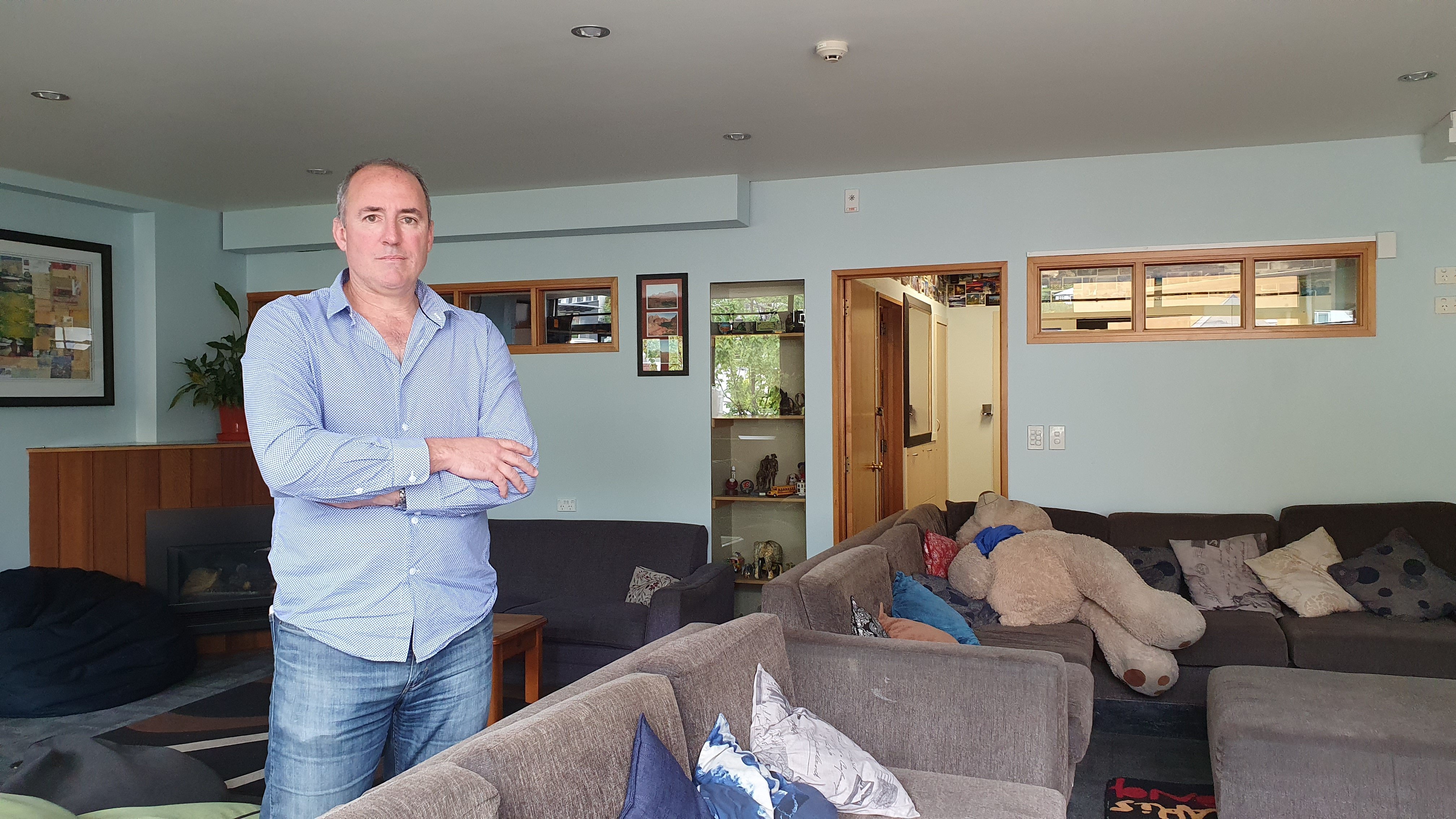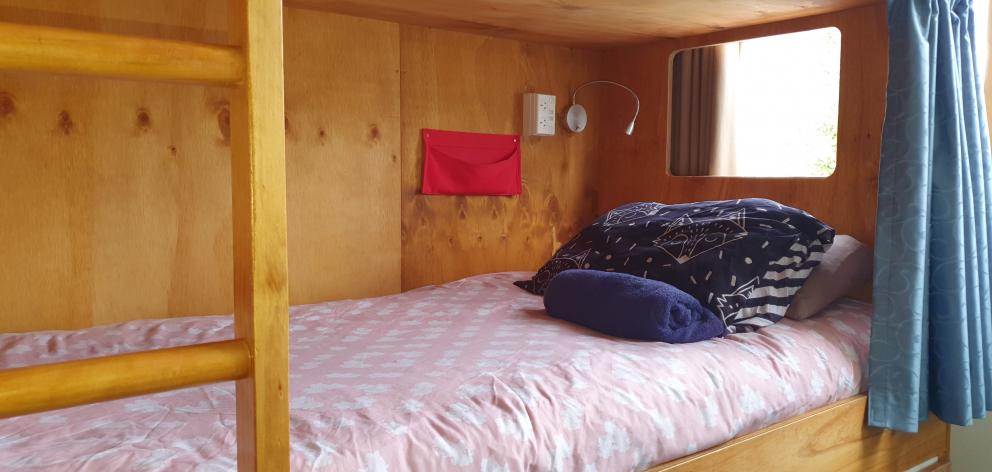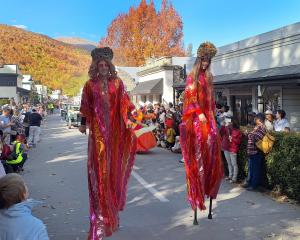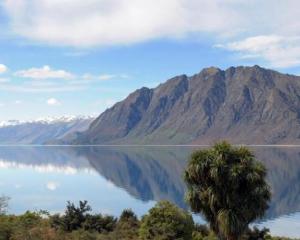
Twenty years ago, backpacking really took off - in 2020, the opposite happened.
Thanks to Covid-19, young backpackers were forced to put away their passports and stay home.
For the hostel industry in Queenstown, where rooms had been booked out weeks in advance - backpackers looking for an extension often had to check the Hostelworld app religiously and beg receptionists for good news - the world turned upside down.
The impact of Covid-19 was stark, and for hostel owners, any reduction in occupancy levels during the winter season meant financial loss.
New Zealand Hostel Association chairman Brett Duncan owns two hostels in the resort, Adventure Queenstown and Adventure Q2.
"If I ran 100% full, 365 days a year, I would have to sell beds at an average of $28 a night to break-even.
"At the moment, the cheapest bed we are selling is $21, which in peak season would usually be $38."
Hostels in Queenstown ran at 37% occupancy between the end of lockdown and September - 5% above the national average - when they would normally have hit 95%.
"None of us are making money and we’ve got a race to the bottom with rates."

Mr Duncan had converted his Q2 hostel in Athol St to a boarding house, offering weekly discounted rates to foreigners who needed to make their money stretch.
He said others had adopted similar strategies, but he did not believe there was any impact on the rental market because the people staying had limited time left on their visas.
In his Camp St hostel, half of his guests were international visitors, while the rest were New Zealand couples looking for private rooms or groups of friends booking out dormitories for weekend stays.
"Kiwis will come stay in hostels if you have private rooms because they still have the communal facilities - kitchens, lounge rooms - which is an advantage to some people.
"Some people just like the vibe."
He said the unexpected pick-up in the domestic market had been "something of a saviour", but it was nowhere near enough to enable a business to show a proft.
In order to capture the market, he had converted some dorms to private rooms and pressed forward with a green plan.
The hostels had gone bagless, with recycling bins in each room, energy-efficient LED lights and other environmentally friendly initiatives.
Sustainability was a key issue for the modern backpacker, and it would be an important factor in where those travelling when the borders reopened would choose to stay, Mr Duncan said.
Even before Covid-19, cracks had appeared in the hostel market, with fewer young visitors from Britain, the US and Germany.
"Tourism youth numbers were softening, it’s not like anybody was panicking, but certainly the numbers were softening on previous years."
Mr Duncan said the lead-in time for his hostel bookings - the point at which the hostel reached 90% capacity - fell from three weeks to seven days.
"Industry-wide, we probably peaked in summer 2015-16 and it’s been a slow, slow decline... and then of course in March this year, the tap got turned off."
One of his staff, Ben Oren, from England, worked part time to cover his accommodation bills and had a second job in a nearby bar.

The 29-year-old was attracted to Queenstown by the ski season and said hostels were the ideal place to meet people.
However, he believed in New Zealand they were too expensive and often tried to be too flash - for him, a cheap room was more important.
When Mr Oren first moved to the resort, finding a job had been near impossible, but now he said there were many opportunities for work.
His colleague, Emily Kurland (32), said she was holding out hope for a Queenstown-specific visa extension, as she had no desire to return to her native United States.
Both agreed the social aspect of hostel life had changed, with fewer internationals and large groups of New Zealanders mainly sticking to their friendship groups.
Across town, Tahuna Pod Hostel has managed to maintain occupancy rates at a reasonable level - but through heavy discount.
Operations manager Holly Mulef said that came with problems, as it meant the more luxury style hostel attracted a different cliental to usual.
"It’s causing a lot of problems, it’s affecting our reputation and ratings online."
She said even with prices below 50% what they would normally charge, some people were asking for cheaper rates.
"People are refusing to pay and they are going to drive businesses into the ground."
Ms Mulef said another major issue had been getting staff and to employ New Zealanders; they had had to raise wages by $5 an hour at a time when they were losing money.
The staff shortages even mean using external cleaning contractors.
Recent remarks by new Tourism Minister Stuart Nash about targeting high value tourists could also have ramifications.
"I firmly believe that the low-spending but high-cost tourist is not the future of our tourism industry," Mr Nash said.
In Christchurch, Urbanz Accommodation Christchurch co-owner Paul Crooks bristled at that idea.
"He’s completely wrong. Backpackers actually spend the most money in the country because they stay for weeks and months. They are the high-value tourists.
"They’re the ones that spread out around the whole country, they are the ones who support all the local communities."
- Additional reporting by Star Media












